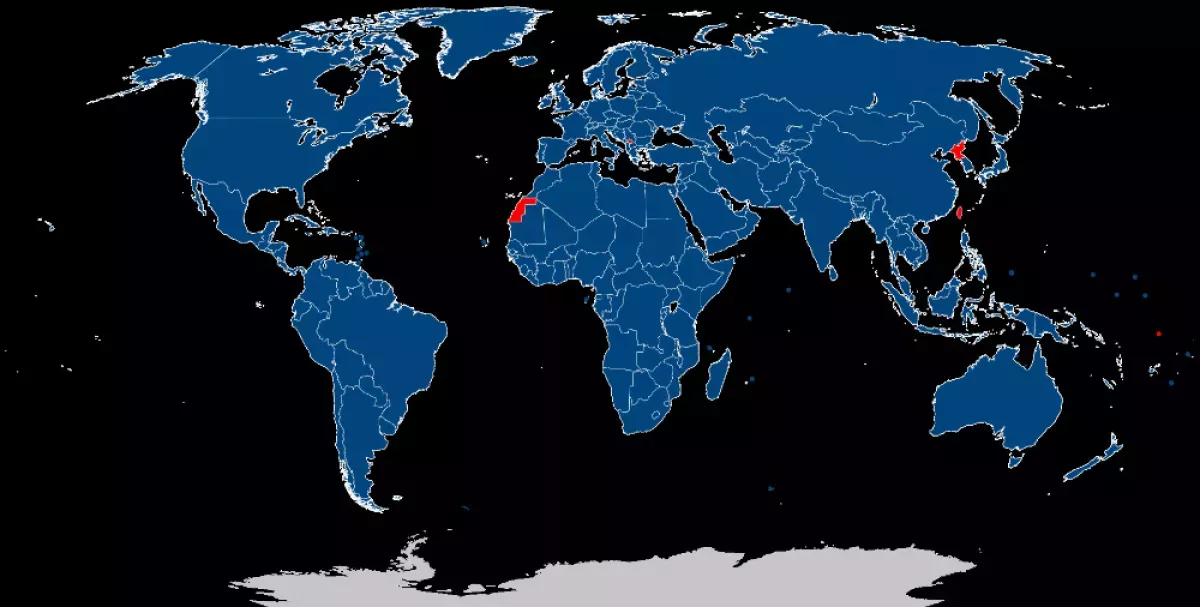Interpol, the International Criminal Police Organization, is the world's largest international police organization. Headquartered in Lyon, France, it facilitates worldwide police cooperation and crime control. With 196 member states each having a National Central Bureau, and seven regional bureaus, Interpol provides a platform for international collaboration in combating transnational crime. It enables police forces globally to share data, intelligence, and expertise, and coordinate operations to address issues such as terrorism, cybercrime, and drug trafficking.
1904: Failure of the St. Petersburg Meeting
In 1904, a follow-up meeting to the 1898 Anti-Anarchist Conference of Rome in St. Petersburg failed to yield results in creating a formal structure for addressing the international anarchist movement.
1914: International Criminal Police Congress in Monaco
In 1914, the International Criminal Police Congress was held in Monaco, where diplomats and legal officials from two dozen countries discussed international collaboration in criminal investigations, the sharing of investigative techniques, and extradition procedures.
1922: International Police Conference in New York City
In 1922, the United States attempted a similar initiative through the International Police Conference in New York City, but it failed to garner international support.
September 1923: Organization Founded
In September 1923, the organization known as Interpol was founded at the close of the International Police Congress in Vienna as the International Criminal Police Commission (ICPC).
1923: Founding of the International Criminal Police Commission
In 1923, at the International Criminal Police Congress in Vienna, the International Criminal Police Commission (ICPC), the direct forerunner of Interpol, was founded.
1928: United Kingdom Joins
In 1928, the United Kingdom joined the ICPC.
1934: ICPC Membership More Than Doubles
By 1934, the ICPC's membership more than doubled to 58 nations.
1938: United States Joins
In 1938, the United States joined Interpol.
November 29, 1941: Interpol had offices at Am Kleinen Wannsee 16
On November 29, 1941, Interpol had offices at Am Kleinen Wannsee 16.
1942: Headquarters Moved to Berlin
In 1942, the ICPC’s headquarters were moved to Berlin.
1945: End of World War II
In 1945, the end of World War II marked the end of Nazi control over the ICPC.
1946: Revival as ICPO
In 1946, after World War II, the organization was revived as the International Criminal Police Organization (ICPO).
1946: Telegraphic Address
Since 1946, the telegraphic address became the base for the new name adopted in 1956.
1950: Adoption of the current emblem of Interpol
In 1950 the current emblem of Interpol was adopted and includes the following elements:
1951: Centre for Peace Studies Recommendations
The Centre for Peace Studies created recommendations for Interpol, in particular, to delete Red Notices and Diffusions for people who were granted refugee status according to 1951 Refugee Convention issued by their countries of origin, and to establish an independent body to review Red Notices on a regular basis.
1956: New Constitution and Name
In 1956, the ICPC adopted a new constitution and changed its name to Interpol, derived from its telegraphic address.
1967: Headquarters move to Saint-Cloud
In 1967, Interpol's headquarters were established in Saint-Cloud, a Parisian suburb.
1968: Dickopf Elected as President
In 1968, Dickopf was elected as the president of Interpol.
1972: Dickopf Leaves Post
In 1972, Dickopf left his post as president of Interpol.
September 1984: Interpol transferred recognition to the People's Republic of China
In September 1984, Interpol transferred its recognition from the ROC to the PRC.
1989: Headquarters move to Lyon
In 1989, Interpol's headquarters were moved to Lyon.
1997: Cases of detention and deportation of the Uyghurs recorded
Since 1997, 1,546 cases from 28 countries of detention and deportation of the Uyghurs were recorded.
2004: External Auditors
From 2004 Interpol's external auditors was the French Court of Audit.
2004: Special Representative Office to the UN
In 2004, Interpol opened a Special Representative Office to the UN in New York City.
2006: Manuel Rosales Venezuelan presidential election candidate
Manuel Rosales was a Venezuelan presidential election candidate in 2006.
January 2008: Jackie Selebi Resigns
In January 2008, Jackie Selebi resigned as president of Interpol after being charged with corruption.
October 2008: Appointment of Khoo Boon Hui
In October 2008, Singaporean Khoo Boon Hui was appointed as president of Interpol.
2008: UNHCR points to the problem of arrests of refugees
In 2008, the office of the United Nations High Commissioner for Refugees pointed to the problem of arrests of refugees on the request of Interpol in connection with politically motivated charges.
2009: Issuance of Interpol Travel Documents
In 2009, Interpol began issuing its own travel documents.
2009: Special Representative Office to the EU
In 2009, Interpol opened a Special Representative Office to the EU in Brussels.
2009: Manuel Rosales fled to Peru
In 2009, Manuel Rosales, a politician who opposed Hugo Chavez, fled to Peru and was subject to a red alert on charges of corruption for two weeks.
July 2010: Selebi Found Guilty of Corruption
In July 2010, Jackie Selebi was found guilty of corruption by the South African High Court in Johannesburg.
November 2010: Auditor Change
In November 2010, the French Court of Audit was replaced by the Office of the Auditor General of Norway as Interpol's external auditor.
2010: OSCE Parliamentary Assembly Declaration in Oslo
In 2010, the OSCE Parliamentary Assembly (PACE), in their declaration adopted in Oslo, criticized some OSCE member States for their abuse of mechanisms of the international investigation and urged them to support the reform of Interpol in order to avoid politically motivated prosecution.
September 2011: Command and Coordination Centre in Buenos Aires
In September 2011, a second Interpol Command and Coordination Centre was added in Buenos Aires.
November 8, 2012: Mireille Ballestrazzi Elected President
On November 8, 2012, Mireille Ballestrazzi was elected as the first female president of Interpol.
2012: OSCE Parliamentary Assembly Declaration in Monaco
In 2012, the OSCE Parliamentary Assembly (PACE), in their declaration adopted in Monaco, criticized some OSCE member States for their abuse of mechanisms of the international investigation and urged them to support the reform of Interpol in order to avoid politically motivated prosecution.
2013: Criticism over Interpol's deals with private sector bodies
In 2013, Interpol was criticized over its multimillion-dollar deals with such private sector bodies as FIFA, Philip Morris, and the pharmaceutical industry due to lack of transparency and potential conflicts of interest.
2013: Incident Response Teams Deployed
In 2013, Interpol's Incident Response Teams (IRTs) were deployed eight times.
2013: Interpol Foundation for a Safer World Created
In 2013, the Interpol Foundation for a Safer World was created to enhance collaboration between Interpol and the private sector.
2013: OSCE Parliamentary Assembly Declaration in Istanbul
In 2013, the OSCE Parliamentary Assembly (PACE), in their declaration adopted in Istanbul, criticized some OSCE member States for their abuse of mechanisms of the international investigation and urged them to support the reform of Interpol in order to avoid politically motivated prosecution.
2013: PACE's Istanbul Declaration cited specific cases of prosecution
In 2013, the PACE's Istanbul Declaration of the OSCE cited specific cases of such prosecution, including those of the Russian activist Petr Silaev, financier William Browder, businessman Ilya Katsnelson, Belarusian politician Ales Michalevic, and Ukrainian politician Bohdan Danylyshyn.
January 2014: Criticism of Interpol's files control mechanisms
In January 2014, the Parliamentary Assembly of the Council of Europe criticized the mechanisms of operation of the Commission for the Control of Interpol's files, in particular, non-adversarial procedures and unjust decisions.
July 2014: Dmytro Yarosh placed on Interpol's international wanted list
On July 25, 2014, Dmytro Yarosh was placed on Interpol's international wanted list at the request of Russian authorities.
September 2014: Command and Coordination Centre in Singapore
In September 2014, a third Interpol Command and Coordination Centre was opened in Singapore.
December 2014: Security Service of Ukraine liquidated sabotage group
In December 2014, the Security Service of Ukraine (SBU) liquidated a sabotage and reconnaissance group that was led by a former agent of the Ukrainian Bureau of INTERPOL.
January 2015: Viktor Yanukovych placed on Interpol's wanted list
On January 12, 2015, Viktor Yanukovych was eventually placed on Interpol's wanted list as a suspect by the new Ukrainian government for the mass killing of protesters during Euromaidan.
April 2015: Alondra Díaz-Nuñez apprehended in Mexico
In April 2015, Alondra Díaz-Nuñez was apprehended in Guanajuato City, Mexico, after being mistaken for a missing American teenager, leading to heavy criticism of Interpol from Mexican news and media.
April 2015: Official Opening of Interpol Global Complex for Innovation
In April 2015, the Interpol Global Complex for Innovation (IGCI) was officially opened in Singapore.
May 2015: PACE Committee hearing on Interpol abuse
In May 2015, the PACE Committee on Legal Affairs and Human Rights organized a hearing in Yerevan regarding the preparation of a report on Interpol abuse, allowing representatives of NGOs and Interpol to speak.
July 2015: Interpol organized a session of the Working Group
From 1 to 3 July 2015, Interpol organized a session of the Working Group on the Processing of Information to verify information processing mechanisms.
July 2015: Arrest warrant against Viktor Yanukovych suspended
On July 16, 2015, the international arrest warrant against Viktor Yanukovych was suspended pending further review.
2015: Interpol severed ties with private-sector bodies
After the 2015 FIFA scandal, Interpol severed ties with all the private-sector bodies that evoked such criticism, and adopted a new and transparent financing framework.
2015: Departure of HSBC CEO from Foundation Board
In 2015, Interpol's president obtained the departure of the HSBC CEO from the Interpol Foundation for a Safer World board following the Swiss Leaks allegations.
November 2016: Meng Hongwei Elected President
In November 2016, Meng Hongwei was elected president of Interpol.
2016: Taiwan criticized Interpol for turning down its application
In 2016, Taiwan criticized Interpol for turning down its application to join the General Assembly as an observer. The United States supported Taiwan's participation.
September 2017: Palestine and Solomon Islands Become Members
In September 2017, Palestine and the Solomon Islands were accepted as Interpol members.
September 2017: Report on Turkey weaponizing Interpol mechanisms
In September 2017, a report by the Stockholm Center for Freedom stated that Turkey has weaponized Interpol mechanisms to hunt down legitimate critics and opponents.
February 2018: Salih Muslim briefly detained in Prague
On February 25, 2018, Syrian-Kurd Salih Muslim was briefly detained at Turkey's request in Prague, but was released 2 days later.
March 2018: Czech authorities dismissed Turkey's request
On March 17, 2018, the Czech authorities dismissed Turkey's request regarding Salih Muslim as lacking merit.
September 2018: Meng Hongwei Reported Missing
At the end of September 2018, Meng Hongwei was reported missing during a trip to China.
October 7, 2018: Meng Hongwei Resigns
On October 7, 2018, Interpol announced that Meng Hongwei had resigned his post with immediate effect.
November 21, 2018: Kim Jong Yang Elected President
On November 21, 2018, Interpol’s General Assembly elected Kim Jong Yang to fill the remainder of Meng’s term.
2018: UAE hosted the General Assembly
In 2018, the United Arab Emirates hosted the General Assembly.
2019: Red and Yellow Notices in Circulation
As of 2019, there were 62,448 valid Red and 12,234 Yellow Interpol notices in circulation.
2019: Interpol's Operating Income
In 2019, Interpol's operating income was €142 million.
2020: Gnyot co-founded the Free Association of Athletes
During the 2020–2021 Belarusian protests, Gnyot co-founded the Free Association of Athletes (SOS-BY), bringing together athletes opposed to the Lukashenko regime.
2020: General Assembly postponed due to the COVID-19 pandemic
In 2020, the General Assembly was postponed due to the COVID-19 pandemic.
2020: End of Meng Hongwei's Term
Meng Hongwei was meant to serve as president until 2020.
June 2021: Opposition to Al-Raisi's Candidacy
In June 2021, French Parliamentarians urged President Emmanuel Macron to oppose the candidacy of the UAE's General Ahmed Nasser Al-Raisi due to accusations of torture.
October 2021: Complaint Submitted to French Prosecutor
In October 2021, lawyers submitted a complaint to the French Prosecutor in Paris citing Al-Raisi's role in the unlawful detention and torture of Ali Issa Ahmad and Matthew Hedges.
November 2021: Criminal Complaint Filed in Turkey
In November 2021, a Turkish lawyer filed a criminal complaint against Al-Raisi's nomination in Turkey.
November 25, 2021: Ahmed Naser Al-Raisi Elected President
On November 25, 2021, Ahmed Naser Al-Raisi was elected as president of Interpol, amidst controversy.
2021: Gnyot co-founded the Free Association of Athletes
During the 2020–2021 Belarusian protests, Gnyot co-founded the Free Association of Athletes (SOS-BY), bringing together athletes opposed to the Lukashenko regime.
2021: Extradition of Bahraini activist and concerns about Al-Raisi's presidency
In 2021, after Ahmed Naser Al-Raisi became Interpol's President, Interpol ignored an injunction by the European Court of Human Rights and cooperated with Serbian authorities to extradite Bahraini activist Ahmed Jaafar Mohamed Ali. Concerns were raised about Al-Raisi's presidency.
May 10, 2023: Operation Identify Me Launched
On May 10, 2023, Operation Identify Me was launched.
October 30, 2023: Belarusian filmmaker Andrey Gnyot arrested in Belgrade
On October 30, 2023, Belarusian filmmaker Andrey Gnyot was arrested in Belgrade due to an Interpol warrant at the request of Belarusian authorities.
2023: Interpol member states voiced their support for Taiwan's bid to re-join
In 2023, over 60 Interpol member states voiced their support for Taiwan's bid to re-join the organization.
June 2024: Andrey Gnyot transferred to house arrest
In June 2024, Andrey Gnyot, who was arrested in Belgrade on October 30, 2023, was transferred to house arrest after spending seven months in detention.
Mentioned in this timeline
Ukraine is a country in Eastern Europe the second-largest on...
Venezuela officially the Bolivarian Republic of Venezuela is located on...
Germany officially the Federal Republic of Germany is a nation...
China officially the People's Republic of China is an East...
Africa is the second-largest and second-most populous continent comprising of...
Japan is an East Asian island country located in the...
Trending
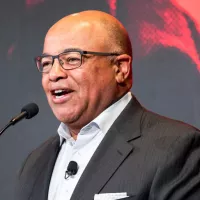
1 hour ago Mike Tirico's Inspiring Olympic Sign-Off: A Look at His Legacy in Sports Broadcasting.
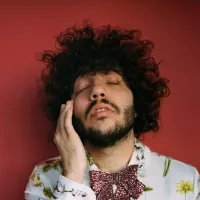
1 hour ago Benny Blanco's Dirty Feet Video Sparks Internet Outrage and Divorce Suggestions for Selena Gomez.
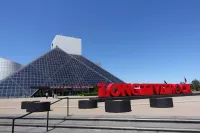
1 hour ago Rock & Roll Hall of Fame Announces 2026 Nominees: Mariah, P!NK, Wu-Tang Clan Lead
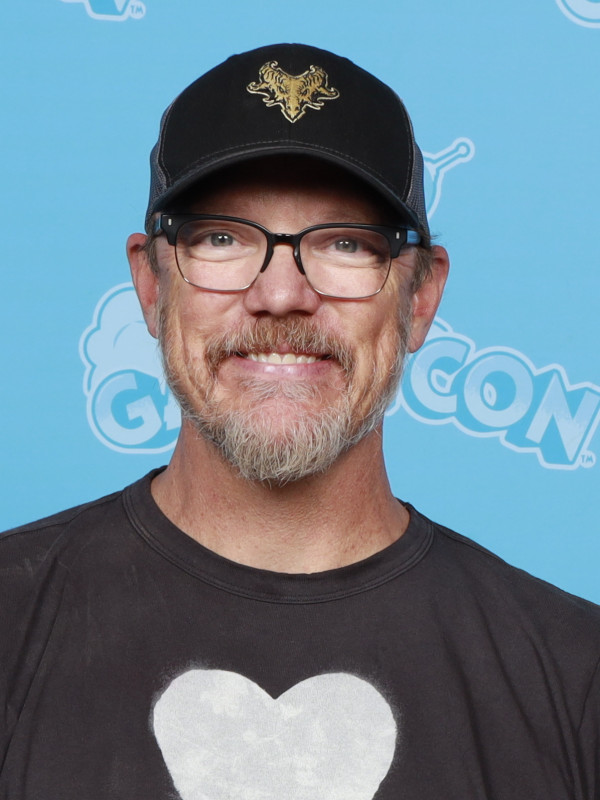
1 hour ago Matthew Lillard Responds to Quentin Tarantino's Criticism, Appreciates Hollywood's Support After Feeling 'Punched'
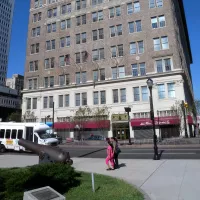
2 hours ago New Jersey Schools impacted as a major blizzard brings record snowfall.
2 hours ago Rugby Property Assets acquires Cavendish Walk Shopping Centre in Merseyside for £1.5m.
Popular

Jesse Jackson is an American civil rights activist politician and...

Susan Rice is an American diplomat and public official prominent...

Barack Obama the th U S President - was the...

Michael Joseph Jackson the King of Pop was a highly...

XXXTentacion born Jahseh Dwayne Ricardo Onfroy was a controversial yet...

Bernie Sanders is a prominent American politician currently serving as...
